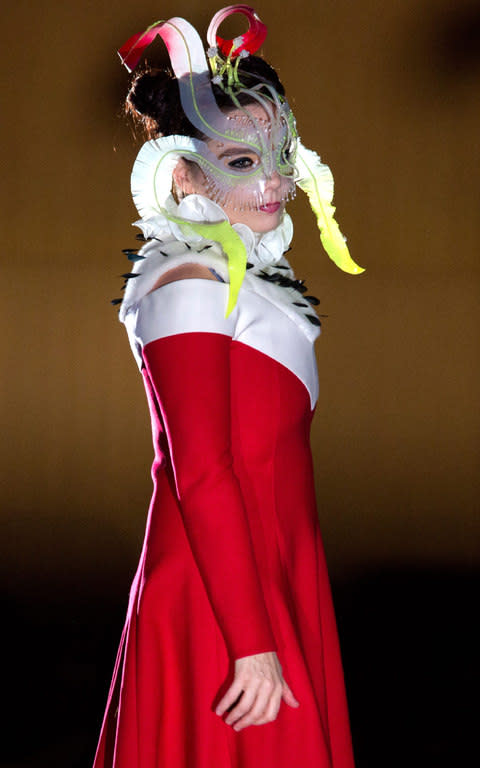Björk's Utopia is befuddling, dazzling and irritating – review

First, a confession. The idea of Björk’s 10th solo album filled me with trepidation. The 52-year-old Icelander is an artist of vision and skill, her music unlike anyone else's. She can be moving, amusing, inspiring and overwhelming. But she is not always a pleasure to listen to, especially when, as here, she completely untethers herself from the formal conventions of songwriting. And whatever else Björk’s new album is, it’s not pop.
It is called Utopia, and it comes at you in waves and surges of sound: fluttery woodwind, bursts of harp and washes of orchestra, all cascading over fragmented electronica. Tracks are linked by birdsong. Björk’s voice stabs breathily through choral clouds of other voices (also Björk’s).
Beautiful melodies are disrupted by barrages of distorted percussion, hammering away on bewildering rhythmic tangents. There is barely anything as straightforward as a verse and chorus. Björk's audacity has increased steadily throughout her career.
But while her last album, 2015’s Vulnicura, used the same avant-garde warp and weft of orchestra and electronica, it was given sharp focus by the strong emotional content – it was inspired by her break-up with Matthew Barney, the father of her teenage daughter. Like Vulnicura, Utopia is also a collaboration with the electronic co-producer Arca (Alejandro Ghersi), but here the mood is more exultant, the structure correspondingly more footloose.

In Björk's words, this is her “Tinder album”, and there are songs of dizzy infatuation and earthy sex. She has also described it as a concept album about women fleeing patriarchy to form an eco-island community in which to raise their daughters – not something you would have guessed from the lyrics, but there are certainly darker tones here, metaphors of implacable nature, and a vein of anger against fathers. Barney sued Björk in 2015 for more custody of their daughter, an event Björk refers to on the track Sue Me, with the refrain “Sue me! Sue me! Sue me!"
This is certainly not music that you can consume passively. Björk's extraordinary, over-enunciated vocals rarely give you hooks over the shifting melodies, and discombobulating lurches in sound and rhythm demand nothing less than the listener’s full attention.
Simultaneously beautiful and befuddling, dazzling and irritating, Utopia has something of Stravinsky or Stockhausen about it. On some level, it may be a work of brilliance, but I suspect it is too far adrift from the rest of pop culture to appeal to anyone but a Björk devotee. If you can dance to it, you have bendier limbs than I. And it's hard to imagine anyone singing along – perhaps not even Björk herself.

